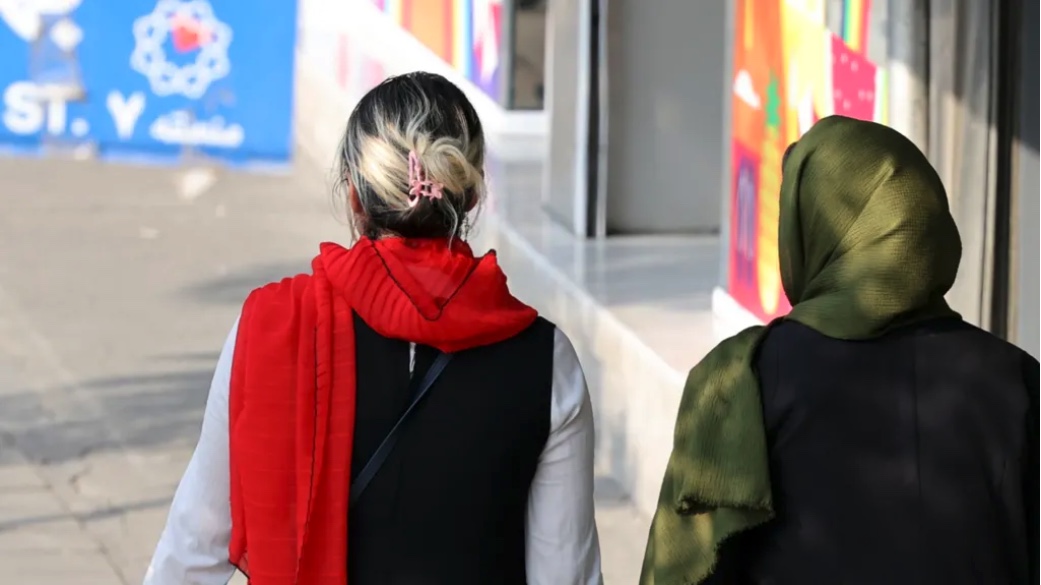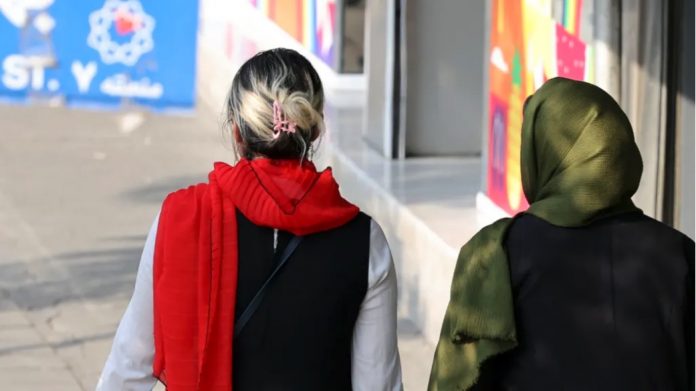ประธานาธิบดีคนใหม่ของอิหร่านได้กล่าวว่า ตำรวจศีลธรรมจะไม่ “รบกวน” ผู้หญิงในเรื่องการสวมฮิญาบที่เป็นกฎบังคับอีกต่อไป หลังจากที่องค์การสหประชาชาติเตือนว่าผู้หญิงยังคงถูกลงโทษอย่างรุนแรงจากการฝ่าฝืนกฎการแต่งกายที่เข้มงวด
คำพูดของ Masoud Pezeshkian มีขึ้นในวันครบรอบสองปีของการเสียชีวิตของ Mahsa Amini วัย 22 ปี ที่ถูกจับกุมเนื่องจากถูกกล่าวหาว่าสวมฮิญาบไม่เหมาะสม จนนำไปสู่การประท้วงทั่วประเทศ
เมื่อสัปดาห์ที่แล้ว องค์การสหประชาชาติกล่าวว่ารัฐบาลอิหร่านได้ “เพิ่มความพยายาม” ในการปราบปรามสิทธิสตรีและการเคลื่อนไหวใด ๆ ที่ยังคงเหลืออยู่ แต่ Pezeshkian กล่าวว่าตำรวจศีลธรรมไม่ควรเผชิญหน้ากับผู้หญิงบนท้องถนนอีกต่อไป
Pezeshkian ซึ่งดำรงตำแหน่งประธานาธิบดีหลังจากที่ผู้ดำรงตำแหน่งคนก่อนเสียชีวิตจากเหตุเฮลิคอปเตอร์ตก ถูกมองว่าเป็นผู้นำที่มีแนวโน้มปฏิรูป
ในการตอบคำถามจากผู้สื่อข่าวหญิงคนหนึ่งซึ่งกล่าวว่าเธอได้หลีกเลี่ยงเส้นทางระหว่างทางไปงานแถลงข่าวเพื่อเลี่ยงรถตำรวจ โดยสวมฮิญาบแบบหลวม ๆ ที่เผยให้เห็นเส้นผมบางส่วน Pezeshkian ถามว่าตำรวจยังคงลาดตระเวนตามถนนอยู่หรือไม่ ซึ่งผู้สื่อข่าวยืนยันว่าเป็นเช่นนั้น
Pezeshkian ตอบว่า “ตำรวจศีลธรรมไม่ควรเผชิญหน้ากับ [ผู้หญิง] ผมจะติดตามเพื่อไม่ให้พวกเขาถูกรบกวนอีกต่อไป”
คำพูดนี้ออกอากาศสดผ่านเครือข่ายทีวีหลัก รวมถึงช่องข่าว IRINN คลิปการสนทนากับผู้สื่อข่าวหญิงนี้กลายเป็นไวรัลในโลกออนไลน์
นี่เป็นการแถลงข่าวครั้งแรกของ Pezeshkian นับตั้งแต่เข้ารับตำแหน่งในเดือนกรกฎาคม แทนที่ Ebrahim Raisi ซึ่งเป็นผู้นำสายอนุรักษ์นิยมสุดโต่ง
ในช่วงการรณรงค์เลือกตั้ง Pezeshkian ให้คำมั่นว่าจะต่อต้านการลาดตระเวนของตำรวจที่บังคับใช้กฎการสวมฮิญาบ และสัญญาว่าจะผ่อนคลายการควบคุมอินเทอร์เน็ตที่มีมานานในประเทศ
อิหร่านได้เพิ่มการสอดส่องโซเชียลมีเดียมากขึ้นหลังการประท้วงต่อต้านรัฐบาลที่นำโดยผู้หญิงในปี 2022
มีสัญญาณของทัศนคติที่ผ่อนคลายมากขึ้นต่อกฎการแต่งกายที่เข้มงวดของประเทศในการแถลงข่าวของ Pezeshkian โดยผู้สื่อข่าวหญิงบางคนสวมผ้าคลุมศีรษะแบบหลวม ๆ ซึ่งเป็นความแตกต่างอย่างชัดเจนจากเหตุการณ์ทางการก่อนหน้านี้ ที่ผู้สื่อข่าวหญิงต้องแต่งกายตามกฎเต็มรูปแบบ ตามรายงานของ BBC Monitoring
อย่างไรก็ตาม ภารกิจค้นหาข้อเท็จจริงล่าสุดของ UN ในอิหร่านระบุว่า ผู้หญิง “ยังคงอยู่ในระบบที่ทำให้พวกเธอเป็นพลเมืองชั้นสอง”
รายงานของ UN ระบุว่า เจ้าหน้าที่รัฐได้ “ขยายมาตรการและนโยบายที่กดขี่” เพื่อลิดรอนสิทธิสตรีและเด็กหญิง โดยเฉพาะในเรื่องการบังคับใช้ฮิญาบ
Iran’s morality police will not ‘bother’ women, president says

Iran’s new president has said that morality police will no longer “bother” women over the wearing of the mandatory hijab headscarf, days after the UN warned women were still being violently punished for breaking the strict dress code.
Masoud Pezeshkian’s comments came on the second anniversary of the death in police custody of 22-year-old Mahsa Amini after she was arrested for allegedly not wearing the hijab properly, sparking nationwide protests.
The UN last week said Iran’s government had “intensified efforts” since that period to suppress women’s rights and crush any last vestiges of activism.
But on Monday, Pezeshkian said that the regime’s morality police should no longer be confronting women on the street.
Pezeshkian, who became president after his predecessor died in a helicopter crash, is seen as a potentially reformist leader.
He was responding to questions from a female reporter who said she had taken detours en route to the press conference to avoid police vans. She was wearing her head scarf loosely with some hair showing.
When asked by Pezeshkian if the police were still on the streets she confirmed that was the case.
In response he said: “The morality police were not supposed to confront [women]. I will follow up so they don’t bother [them]”.
His comments were broadcast live on major state TV networks, including rolling news channel IRINN. The clip of the conversation with the female journalist has since gone viral online.
It was Pezeshkian’s first press conference since coming into office in July, replacing the ultraconservative Ebrahim Raisi.
During his election campaign he pledged to oppose police patrols enforcing the mandatory hijab headscarf. He has also vowed to ease some of the country’s long-standing internet controls.
Iran stepped up surveillance of social media following the nationwide women-led anti-establishment protests in 2022.
Signs of a potentially more relaxed attitude to the country’s strict dress code for women were present at Pezeshkian’s press conference on Monday, where some female journalists wore loose head coverings.
This was a noticeable departure from previous official events where female journalists are required to appear in full hijab, BBC Monitoring reported.
But the UN’s latest fact-finding mission in the country says women “still live in a system that relegates them to second class citizens”.
In its report released last week, the UN said: “State authorities have expanded repressive measures and policies to further deprive women and girls of their fundamental rights.”
It noted the government had “enhanced surveillance of hijab compliance” in both public and private environments while also endorsing an escalation in violence in punishing women and girls who break the rules.
“Security forces have further escalated pre-existing patterns of physical violence, including beating, kicking, and slapping women and girls who are perceived as failing to comply with the mandatory hijab laws and regulations,” the UN said.
It said authorities had also increasingly invoked the use of the death penalty against women activists and “scaled up” executions of those who had expressed solidarity with the 2022 protests known as the Woman, Life, Freedom movement.
The UN mission also noted that a “Hijab and Chastity” bill was in the final stages of approval before Iran’s Guardian Council and could be finalised imminently.
“The Bill provides for harsher penalties for women who do not wear the mandatory hijab, including exorbitant financial fines, longer prison sentences, restrictions on work and educational opportunities, and bans on travel,” the UN investigators said.
By Frances Mao, BBC News

















